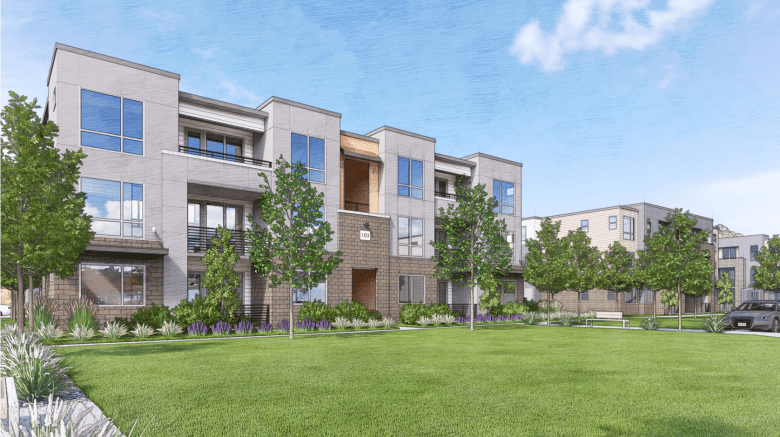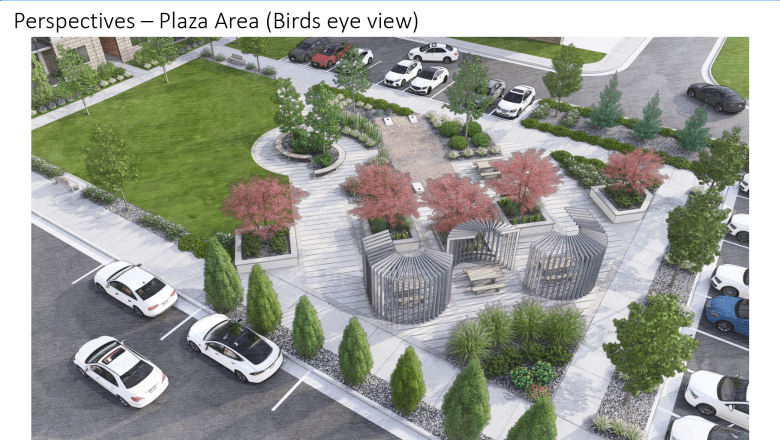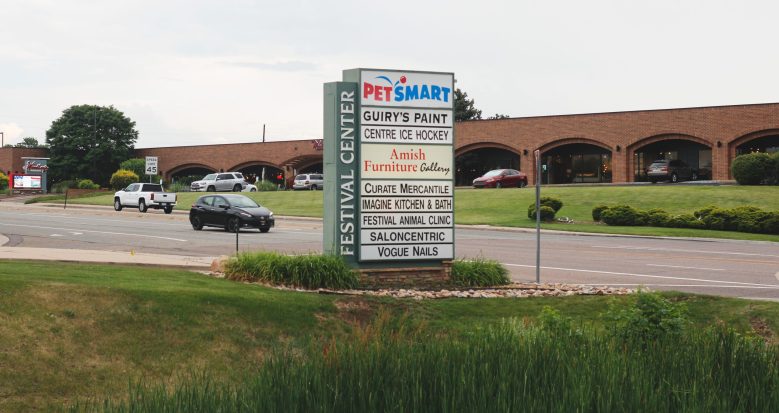On June 17, Centennial City Council adopted Resolution No. 2025-R-22, or the Residences at Festival Center site plan, following a public hearing.
The resolution will allow the construction of 114 single-family attached townhomes on approximately 6.68 acres in Centennial’s Festival Shopping Center, which is located along South University Boulevard and East Otero Avenue. The current vacant retail buildings at the northeast corner of the center will be demolished to make room for the townhomes.
The application for the residential unit proposal was submitted in 2023 by civil engineering company Kimley-Horn on behalf of the center’s property owner, Kwenda Inc., according to the resolution. The homebuilder company, Lokal Homes, which is based out of Greenwood Village, will construct the townhomes.
“Festival Shopping Center was once a thriving mall,” Lokal Homes’ project narrative states. “However, with the development of the Park Meadows Mall and the growth of numerous retail and commercial establishments along the 470 corridor, Festival has declined from its former status as a bustling commercial center. In response to this decline, the proposed site plan marks the first phase of the Festival redevelopment.”
This redevelopment aims to incorporate high-quality architecture and provide more diverse housing options in Centennial, Lokal Homes said.
Jenna Campbell, a Centennial senior planner, said at the June 17 meeting that the site plan also proposes a 60-foot spatial buffer between businesses like Big-O Tires and UMB Bank and the new development.
The site plan also includes a 15-foot-wide pedestrian zone along Otero Avenue and 8-foot-wide internal walkways that connect to the commercial area to the south and to the existing residential areas to the north. Lokal Homes plans to construct a small park to buffer residents from vehicular traffic ways.

The city had an online discussion about the proposed site plan in November 2023, during which members of the public asked questions and voiced concerns about high density, traffic flow and the height of the buildings.
“That space is too small for that many people to live in,” one comment reads. “Otero Avenue is a very busy street with school buses traveling to and from all day. Parking extra cars will be a big problem. I think you should take your plan to another location that is bigger.”
Another commenter that stated they live in a neighborhood near the site plan wrote that they are concerned about the heavy construction: “Having a unit that will face the new development, it will impact us from the moment they demolish the old buildings through the completion of the new when 140 to 300 people move in adding to the congestion in the neighborhood.”
In response to the concerns, the site plan was changed to decrease the number of dwelling units by 20%, and to add the 60-foot buffer, according to Campbell.
Lokal Homes wrote in its 2024 site plan submission: “Construction activities will be isolated from existing residential neighborhoods, ensuring that construction operations remain onsite or utilizes perimeter roads such as East Otero Avenue and South University Boulevard. This approach minimizes the need for construction traffic to cut through adjacent existing neighborhoods, reducing potential disruptions for local residents.”

The new residential units will use the existing infrastructure for water, sewer and transportation systems, and will add a water quality and detention pond. Bike storage facilities will be constructed and each building will have individual trash and recycling pickup, eliminating the need for dumpsters.
Construction is expected to begin in 2026, Lokal Homes said during the June 17 city council meeting.


